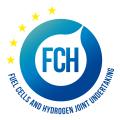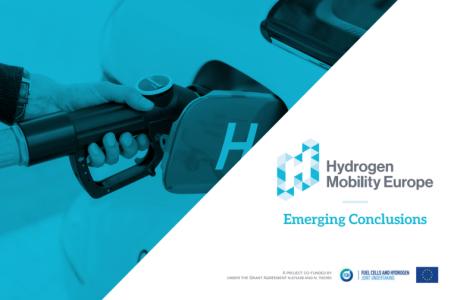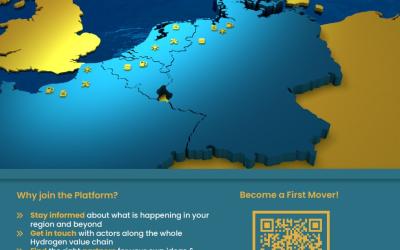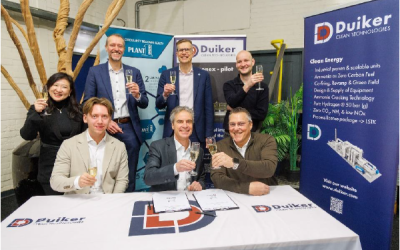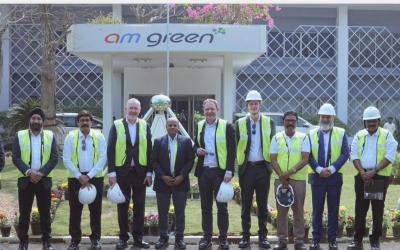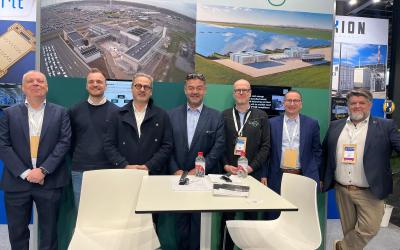Hydrogen Mobility Europe (H2ME) has today published its final report
H2ME, a flagship project for hydrogen mobility involving nearly 50 organisations at the forefront of the sector has today published its final report detailing the key findings and learnings. The findings are released at a crucial time as the European Green Deal seeks a 90% reduction in transport related emissions by 2050.
Hydrogen Mobility Europe (H2ME) has completed its first phase and compiled a rich dataset since initiating in 2016: 630 hydrogen fuel cell electric vehicles have been deployed in 10 countries and 37 new hydrogen refuelling stations installed in 8 countries, achieving 14.5 million km driven and 147 tonnes of hydrogen dispensed across 68,000 refuelling events. It is the largest European deployment for hydrogen mobility to date and demonstrates the commercial potential to rollout fuel cell electric vehicles (FCEVs) and hydrogen refuelling stations (HRS) for large and small fleets.
Following the conclusion of its initial phase, H2ME recommends national and international incentives that ensure the dispensed cost of low carbon hydrogen is competitive for vehicle operators to create a level playing field with other zero emission vehicles. National, regional, and local policies that ensure continued development of the industry are also recommended. The expansion of hydrogen infrastructure as a result of H2ME, co-funded by the FCH-JU, means more FCEVs now have access to refuelling stations however the limited infrastructure prevents full operational advantages of FCEVs being realised.
Incentives such as purchase grants and tax exemptions will unlock demand from vehicle operators and bring market confidence to vehicle suppliers. Similarly, financial support applied per unit (kg) of hydrogen sold, similar to the feed in tariffs which were applied to stimulate early renewable energy uptake, will lower the price of green hydrogen at the pump. This will enable high utilisation of refuelling stations, which strengthens its business case, demonstrated by clusters of captive fleets with high mileage and heavy-duty cycles as they have significantly lower costs per kilogram of hydrogen.
The second phase of deployment will focus on developing state of the art refuelling stations, increased options for producing green hydrogen, and targeting a wider range of vehicles (from light duty to heavy duty vehicles). The lessons from phase one show that future hydrogen mobility strategies should focus more on high mileage and heavy-duty applications to provide the anchor demand for new installations. This will provide a stronger business case to the HRS operators.
Hydrogen could play a key role in enabling high mileage applications can transition to zero emission as these applications have specific operational needs such as long range and short refuelling time, that can be met by FCEVs. The overall cost of operating FCEVs in these fleets is expected to decrease rapidly in the coming years. For example, an analysis from the ZEFER project found that for high mileages applications such as taxis, and with hydrogen at €7,5/kg, FCEVs can reach parity on a total cost of ownership basis with petrol/diesel hybrids in the next 5 years.
With increasing needs for zero emissions mobility solutions to achieve environmental targets, and economics expecting to improve rapidly at scale, there is a strong case to support the commercial rollout for hydrogen mobility.
Bart Biebuyck, Executive Director at Fuel Cells and Hydrogen Joint Undertaking (FCH JU), said: “The first phase of H2ME has demonstrated that light duty hydrogen fuel cell vehicles are performant and nearing market competition with other zero emissions vehicles for high mileage applications, like taxi fleets. In addition, our flagship project was successful in supporting the onset of a European H2 infrastructure for road transport. Today, Europe has a card to play: By integrating these learnings into the heavy duty truck sector, it can capitalise on best practices of vehicles fleets and infrastructure management, making an essential contribution to a green post-Covid recovery of our economy”.
WaterstofNet was the observer country coordinator for the Benelux, Austria and Italy and provides the communication regarding the progress and the state of affairs from and to this countries. In the follow-up project H2ME2 WaterstofNet remains the observer country coordinator, additionaly it will support the Ministry of Infrastructure and Water Management in project tasks for the Dutch partners.
Download here the press release
Download here the report

